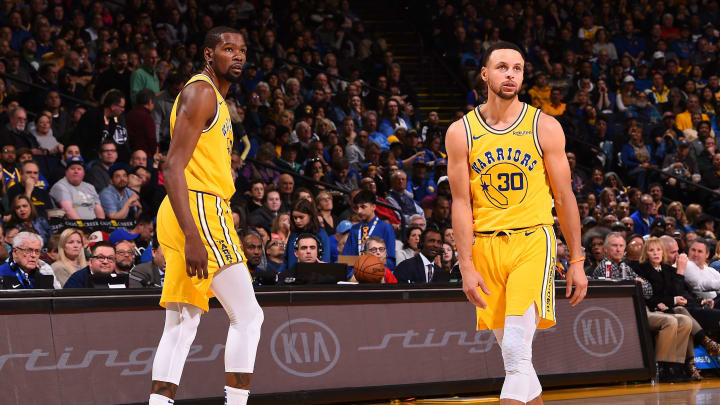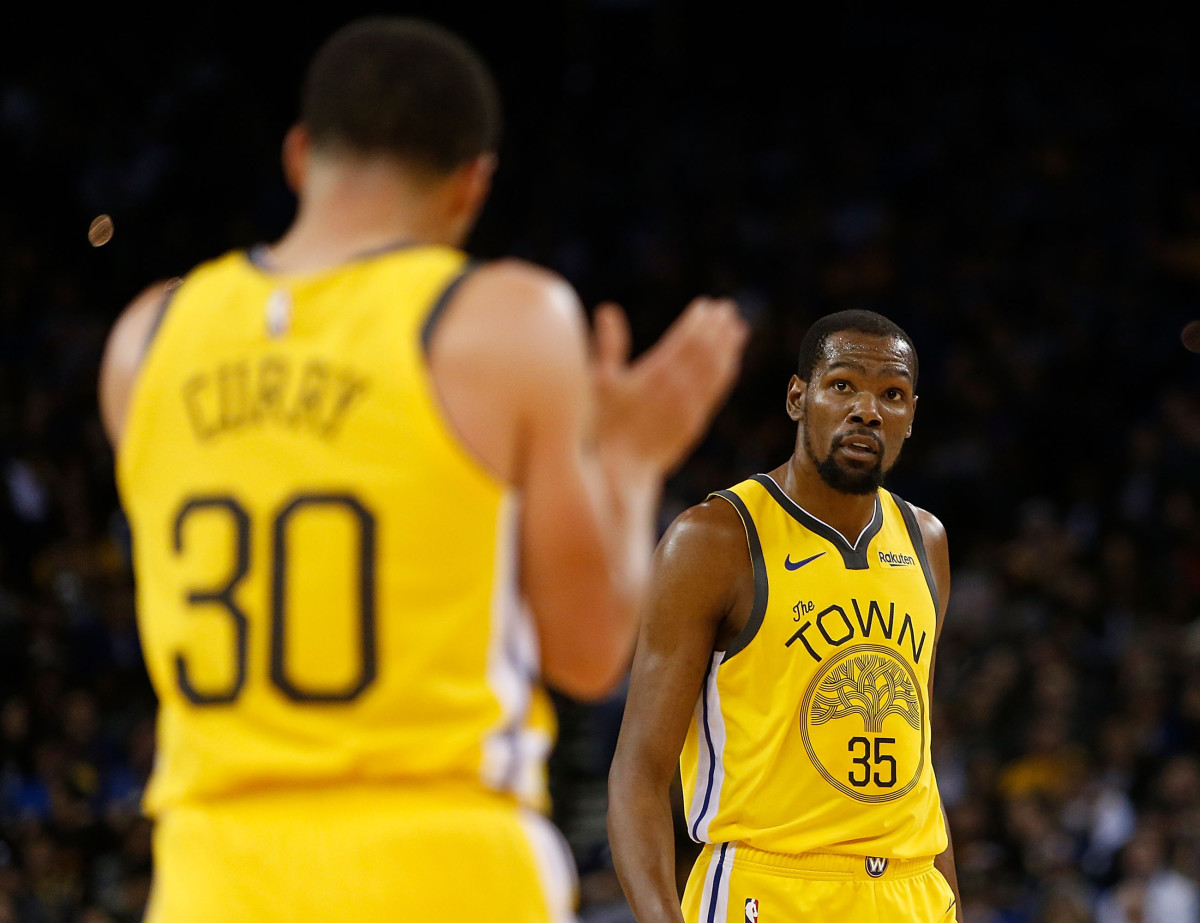The Warriors, the Death Lineup and the War Against Attrition

The Clippers haven’t exposed the Warriors so much as proven them occasionally negligent. What should have been a routine Golden State blowout in Game 2 instead gave way to an unprecedented 31-point comeback. When given the chance in Game 5 to put their first-round series to bed, the Warriors abstained from actually guarding the Clippers until it was far too late. This is what a playoff series looks like when a decisive favorite doesn’t take its dogged, capable opponent all that seriously. Once they do, the series will likely be over.
To the extent that Golden State has any real concern, it’s this: Once the time comes to dig in and actually make a run, the back-to-back champions have been uncharacteristically slow to rally. The Death Lineup is in rigor mortis; what is typically the mechanism for the Warriors’ game-breaking turns has been a net negative in the playoffs thus far, according to NBA.com. Further complicating matters, Steve Kerr has increasingly come to rely on playing Draymond Green at center—the crux of the Death Lineup—as this series has worn on. DeMarcus Cousins is done for the year. Andrew Bogut has not been a helpful player since JaMychal Green replaced Ivica Zubac in the Clippers’ starting lineup, stretching the recently returned Warrior beyond his utility. Kevon Looney has fared well, but big minutes risk overexposure. Playing Green at the five has always been the best option for the Warriors, but in these playoffs it has become one of few that are even viable.

There’s a similar dynamic across the rotation. For a presumed—or even prohibitive—favorite, the Warriors have surprisingly few reliable contributors. In what has become a nine-man rotation, Kerr has essentially six players he can trust. That four of them are All-NBA candidates is what makes the Warriors the Warriors, but the lack of surrounding depth isn’t without its costs. This year, those costs have incurred earlier than expected. When a team’s best lineups aren’t creating the level of separation they’re accustomed to, it’s the reserves who suffer from the fallout. One might appreciate Alfonzo McKinnie for his timely cuts or tough rebounds when the Warriors are soundly in the lead, but at a loss, he wears his every limitation plainly. Under that pressure, the contributions of Shaun Livingston (who has made just one shot over 24 minutes in the past two games) can seem less subtle than slight. The wrong matchup for a traditional center like Bogut can put the Warriors at a disadvantage out of the gate.
No one weeps for a team with Stephen Curry and Kevin Durant (much less Green and Klay Thompson), but there is real, logistical concern in the fact that Golden State may need to stretch the minutes of their best players in the first round. Historically, Kevin Durant has almost always rested at the start of the second and fourth quarters. It is a natural part of his playing rhythm, dating back to his days in Oklahoma City. With the closeout potential of Game 5, Durant stayed in the game at the start of the fourth and played the entire quarter, pushing him to 41 minutes on the night. The Warriors lost anyway, but what better options does Kerr really have to boost his team’s lesser lineups? The tighter the series, the tighter the rotation.
Quinn Cook, Curry’s backup, has already been excised from the rotation. Should the Warriors survive their series to meet the Rockets in the second round, Bogut will likely play even less than the 17-20 minutes he does now. Kerr has gone to great lengths to keep Andre Iguodala’s minutes reasonable (read: under 30), even in crucial playoff games. There is a creeping need for Durant, Curry, Thompson, Green, and even Looney to play more and more, beginning in the first round against an opponent the Warriors should have already dispatched. What matters isn’t the minutes for any one game, but the attrition. A healthy Golden State team should go on to win its third straight title, even with a rotation of six and change. One dealing with any further injury—like, perhaps, the nagging variety brought on by playing extended minutes for two months straight—might find itself unusually vulnerable.
